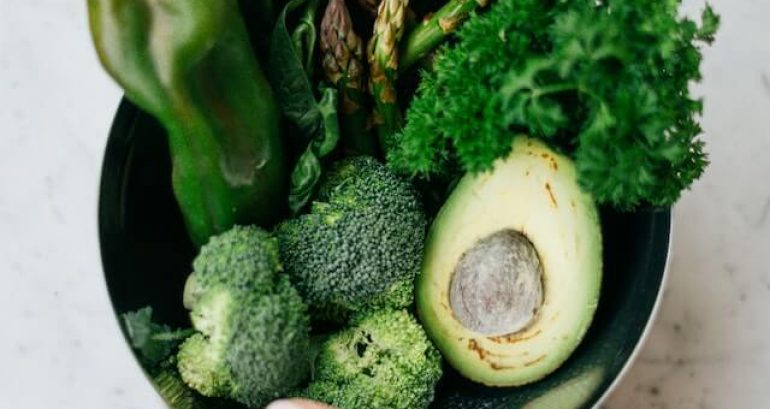Key Points:
1. The archetypes of the “Renunciate” and the “Householder” have their roots in Eastern philosophy, but apply quite nicely to Western nutritional struggles.
2. Which of these sounds harder…making progress by entirely giving up foods you enjoy, or making progress despite NOT doing so?
3. Each path has positives and negatives, but the hardest one is repeatedly switching between the two. That’s what most people do.
Estimated reading time: 4-8 minutes
Listen to this article on Spotify!
When pursuing a nutrition-related goal, it’s easy to find ourselves stuck in a rut, repeating patterns of gain, lose, regain, repeat. In such cases, taking a look at our habits and behaviors through a less traditional lens can help break the cycle. And it’s one such different perspective I have for you today.
At first glance, Eastern philosophy might seem to have little do with the Western world’s weight-loss struggles. However, learning about two Buddhist archetypes, the “householder” and the “renunciate,” led me to conclude that many of us struggling with our waistlines unknowingly take on the role of “part-time monk.”
What do I mean? Well, we waver between two paths in a way that ultimately makes reaching our goals harder and less likely to last. But before we dive deeper, let’s start with some loose definitions, shall we?
The Renunciate and the Householder
“Renunciates” are your classic “monk/hermit” types, who abandon all worldly possessions and relationships to live a monastic life in the mountains. They do this in the pursuit of “ultimate spiritual truth,” unencumbered by the distractions, temptations, and responsibilities of the outside world. Their days are filled with meditation and selfless work towards maintaining the monastery.
By contrast, “householders” live in what most of the West would consider “the real world.” And I don’t mean the reality show, even if modern life can seem more and more absurd with each passing day. While the householder may or may not actively pursue a life of spiritual truth, if they do, it’s while coexisting with their family, work, and societal responsibilities.
Which one is actually harder?
Clearly this matter is purely subjective, but in my opinion, renunciates have inarguably the hardest single step. Giving up all of one’s worldly possessions, responsibilities, and (especially) relationships sounds terrifyingly difficult. However, once the decision to leave everything behind has been finalized, I imagine there’s a strong sense of peace and acceptance that follows.
No longer would you have to meet any pointless deadlines at work, engage in petty disagreements with neighbors about your HOA’s stupid rules, or spend a moment worrying about what others think of your likes, dislikes, and hobbies. Essentially, you’ve permanently rid yourself of all the BS that comes with living in a modern society.
On the other hand, householders face smaller but far more frequent challenges. Living a life of peace, gratitude, and generosity is undoubtedly possible despite all the challenges that accompany modern living, but far from easy. Consider this tongue-in-cheek quote from noted spiritual teacher, Eckhart Tolle. “If you want to see how enlightened you are, go back and live with your parents for two weeks.” The point is, egoically triggering situations arise all the time in modern life, and it takes a different type of strength to navigate them than to avoid them.
What does any of this have to do with nutrition?
Put simply, through years of working with clients, it’s been my experience that most people try to be “part-time nutrition renunciates.” Does this sound familiar? You decide to give up sugar, alcohol, carbs, or whatever else you think may be holding you back. But…only for a predetermined and relatively short period of time, like 30 to 60 days. This works for a while, but then you cave, feel bad about it, and give up.
I’ve written about the detriments of the “all or nothing mindset” before, but there’s an extra layer of nuance here. One who wishes to walk the path of the householder while living a spiritual life must learn to coexist with situations that trigger their egoic self-centeredness. They must also develop an ability to actively choose how much or how little to engage with such scenarios. This way, they haven’t ignored the existence of traits or tendencies they may consider negative; they’ve integrated them.
The renunciate, on the other hand, gives up all of these things forever. They’re no longer exposed to such challenges.
However, when trying to lose body fat, most of us refuse to commit to either path. We typically decide to temporarily give up foods we enjoy, despite having every intention of eating them again. This rarely works. So if you enjoy carbs, alcohol, desserts, or restaurant meals, but aren’t willing to give them up forever, then you’ll be happier and more likely to reach your goals once you learn to coexist with them.
On that note…
Here’s a good rule of thumb: If you wouldn’t give it up for life, don’t give it up for 30 days.
Imagine telling your romantic partner, children, boss, friends, and coworkers that for the next 30 to 60 days, they’ll be unable to contact you. You’ve decided that you have too many commitments, too much stress, and too many responsibilities, so you’re just going to give all of that up for a while. But don’t worry, you reassure them, this is just temporary, and only so you can feel and look a little better. What type of reaction would you expect to receive? Now imagine that you attempted to do this once or twice every single year.
Do you think you’d be able to hold down a consistent job or maintain a serious relationship? Probably not, right?
On the other hand, if you do feel comfortable fully giving up foods that make reaching your goals more challenging, embrace that as well! For example, after my fast food experiment, I rarely eat french fries anymore. If I go to McDonald’s, (which yes, I still do sometimes) I order two Big Macs but no drink or french fries. This is because the fries don’t keep me full for what I perceive as “long enough” relative to how many calories they have. Two burgers on the other hand, does. This is because if I’m going to eat 1,200 calories in one sitting, I’d rather enjoy a meal that will keep me full for five hours, not two. So, I’ve effectively “renounced” fast food french fries.
To use a more extreme example of the “renunciate route,” Dr. Paul Saladino, author of The Carnivore Diet, eats no vegetables and no artificially sweetened desserts, whatsoever. He eats mostly meat and fruit. To be clear, I’m not saying one should emulate his eating style if they have no desire to do so. Plus, I thoroughly disagree with some of the things he says, like, “I don’t use food as entertainment.” I absolutely love using food as entertainment, especially in the company of friends and loved ones. However, I do respect that Dr. Saladino has made a commitment to completely avoid the foods he feels do not serve him.
Coexisting is Key
But here’s the thing. Alcohol, sweets, and restaurant meals may serve you incredibly well. Or, they may not. Either way, there’s nothing wrong with consciously deciding that you want to change how frequently you consume them. Doing so shows admirable self-awareness and moderation. It also takes a more nuanced approach than either eating mindlessly or declaring, “That’s it, I’m done with pizza forever!” It recognizes that balance is necessary in all areas of life, and makes an attempt to develop a healthy relationship with what you enjoy.
And that last part is what I think is the biggest key here. We so rarely make the decision to permanently give up foods we enjoy, so what do we really want? Do we want to alternate between eating too much of them and never touching them for 30 days, feeling guilty if we indulge? Or, do we want to figure out how to integrate them into our lives, peacefully and joyfully coexisting with them while still achieving our goals? Check out the “Should you count calories?” series if you’d like some specific strategies, tactics, and tools for doing exactly that.
Now, I won’t lie to you and say that discovering this balance will be a breeze, especially at first. But it is possible, and it will be well worth your time and effort. In the end, nobody said the path of the householder was easy, but the rewards sure can be great.

